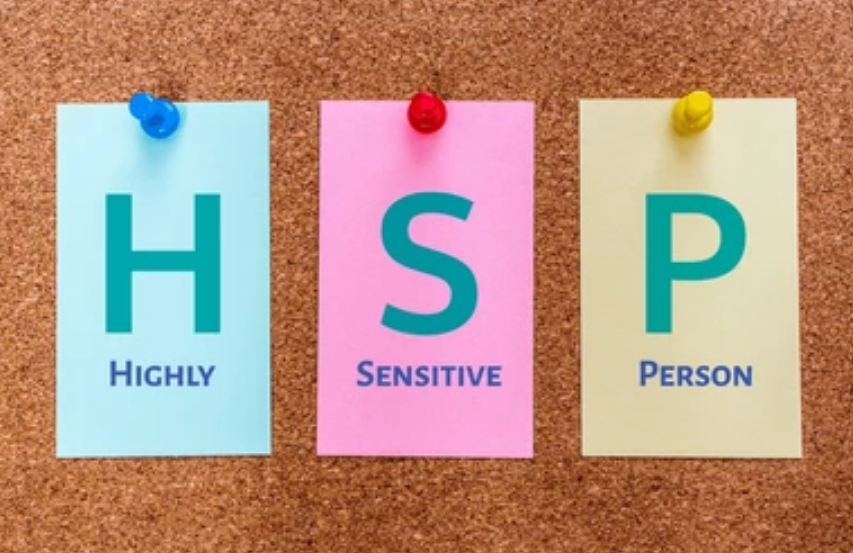-1733493741450.webp)
Stress affects everyone differently, but for some, it can feel more intense. Do you often find yourself feeling more overwhelmed or stressed in situations where others seem unaffected? You might be a Highly Sensitive Person (HSP).
Dr Sameer Malhotra, Senior Director and Head of Mental Health and Behavioural Sciences at Max Super Speciality Hospital, Saket, explains that HSPs have heightened sensitivities to various stimuli, which can contribute to increased stress levels.
A Highly Sensitive Person (HSP) is someone who processes sensory input, such as light, sound, and emotions, more deeply than others. Dr Sameer Malhotra explains that HSPs are particularly attuned to their surroundings, which can lead to feelings of overstimulation or heightened stress. This trait goes beyond being shy or introverted—it is a neurological and psychological characteristic that causes individuals to experience things on a deeper level.

Dr Malhotra emphasises that heightened sensitivity makes HSPs more vulnerable to stress because their brains react more intensely to both external stimuli and emotional experiences. "HSPs have a stronger emotional response to everyday situations, leading to a greater intensity of stress," he says. This emotional depth can cause them to feel overwhelmed more easily, making stress management more challenging.
Furthermore, Dr Malhotra highlights, "HSPs may feel physically and emotionally drained faster, especially in high-stress environments. This can lead to fatigue, burnout, and prolonged recovery times after stressful events." The combination of heightened sensitivity to sensory input and the emotional processing of experiences means that HSPs take longer to recover from stressors.
Environmental factors and early childhood experiences also play a significant role in shaping an individual's sensitivity. Dr Malhotra notes, "In addition to genetic predispositions, the environment in which an individual grows up can influence how intensely they experience stress as they age." This suggests that the development of HSP traits is shaped not just by biology but also by life experiences, making it crucial for HSPs to understand their triggers and take steps to manage their emotional well-being effectively.

HSPs are more affected by their surroundings, with loud noises, bright lights, and others’ emotions overwhelming them. This leads to heightened emotional responses, making stress harder to process. Dr Sameer Malhotra explains, "HSPs exhibit a more intense and prolonged stress response compared to non-HSPs, which impacts their ability to cope with stress." As a result, they are more prone to anxiety, depression, and physical issues like irritable bowel syndrome and fluctuating blood pressure.
Dr Malhotra adds, "An overactive nervous system in HSPs can lead to emotional and physical burnout, making recovery from chronic stress more difficult." This ongoing sensitivity can strain both mental and physical health.
Don't Miss: Can Massaging Index Finger Cure Fatty Liver? What Experts Want You To Know

How can you identify if you're an HSP? Dr Sameer Malhotra suggests looking for certain signs. HSPs tend to become overwhelmed by stimuli that others may not notice, such as bright lights, loud noises, or uncomfortable textures. They may feel emotionally drained in busy or chaotic environments and have a strong need for quiet time to recharge. Other signs include overthinking, feeling deeply empathetic toward others, and absorbing others’ emotions.
Moreover, HSPs tend to avoid violent or disturbing content, both in media and in real-life situations, as it can be emotionally taxing for them. If you find that you are sensitive to your surroundings or have difficulty recovering from stress, it might be worth exploring whether you fall under the category of an HSP.
Being a Highly Sensitive Person comes with its challenges, especially when it comes to managing stress. If you identify with the traits described above, it’s important to recognise your heightened sensitivity and take steps to manage stress effectively. With the right strategies and support, HSPs can learn to navigate the world in a way that allows them to thrive.
Don't Miss: Having A Baby At 40: Benefits, Risks, And What You Need To Know, As Per Gynaecologist
Note: The information provided in this article is for educational and informational purposes only. It is not intended to be a substitute for professional medical advice, diagnosis, or treatment. Always seek the advice of your physician or other qualified health provider with any questions you may have regarding a medical condition.
Keep reading Herzindagi for more such stories.
Image Courtesy: Freepik
Also watch this video
Herzindagi video
Our aim is to provide accurate, safe and expert verified information through our articles and social media handles. The remedies, advice and tips mentioned here are for general information only. Please consult your expert before trying any kind of health, beauty, life hacks or astrology related tips. For any feedback or complaint, contact us at [email protected].